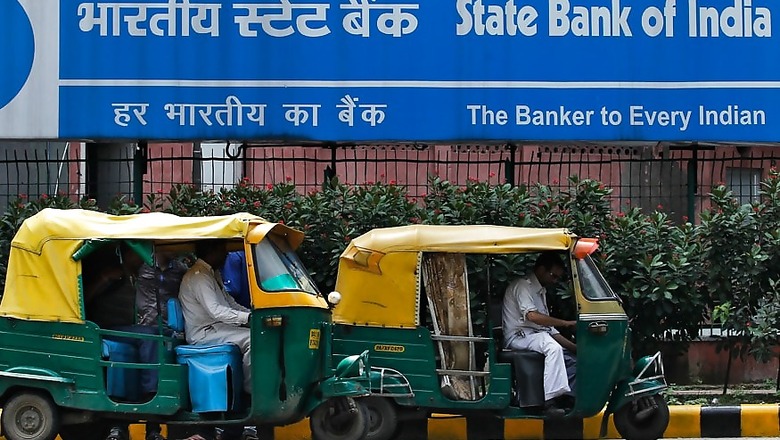
views
Nowadays, everybody wants to be their own boss. People are quitting jobs and putting their hard earned money into their own businesses for which the popular term is “start-up”. As amazing as it sounds, it has its fair share of struggles as well. The biggest one of them is securing funds to set it up.
In order to be successful in the long run, a start-up has to be exemplary, something that is unique and also would need a distinct idea that can create value to customers or add value to existing goods or services. A lot of work has to be done to flourish a start-up, be it with point of touch or digitally via a web portal or an app. All this requires money but the question is who has that sort of money?
As a start-up entrepreneur, what can you do to solve the money problem? Can you get a loan from a bank? The Answer is Yes, so let’s delve on how a start up can obtain bank loan to solve their money issue and set things sailing.
How to get A Bank Loan for Start-Up?
The first thing that comes to our mind when we think of a huge financial requirement, is of a Bank Loan. Banks and financial institutions do give out loans irrespective of the stage at which the company is, based on your requirements, you can choose from a wide array of options like term loans or working capital or asset backed loans. At times banks also give out a loan to you to start your project from scratch but the crucial point here is that you have to satisfy and convince the bank of the success of your venture. The bank considers giving you a loan based on the following few factors - business model, expected returns, your ability to pay back the loan, management experience and expertise and of course the collateral security provided by you.
Banks at times also provide a loan for a startup in novel areas i.e. such an area where the business model in question has not been developed yet, however they will ask for a higher collateral security for the same.
There are various types of Bank Loans for Start-Ups that entrepreneurs can avail depending upon their requirement viz:
1. Asset Backed Loans:
You can also obtain a bank loan for the Research & Development of technology. Asset backed loans solve the purpose of R&D or marketing or expanding the business, however they are usually lent out depending upon the market value of the residential or commercial or industrial property that is to be pledged as collateral security. Usually for a period of 7-15 years banks lend approximately 70% of the assessed market value of the pledged property. In addition to this, you will also be required to provide the bank the details of the business model as specified earlier i.e. expected returns, your ability to pay back the loan, and management experience and expertise.
2. Term Loans
Term loans are lent out for the purpose of buying and constructing capital assets for the business like machinery, plant, equipment, etc. for the use of business.
3. Working Capital Loans
Working Capital Loans can be obtained from banks for the purpose of stocking inventory or even providing credit to customers. However, while lending out money for this, banks adopt a conservative outlook and try to evaluate the working capital requirement for the business based on the model and details provided.
Now that you know, that you can obtain a loan from bank which can fulfill all the requirements of your start-up, the next thing you start pondering about is the collateral security, what is it that you can use for the purpose of pledging with a bank or better still can you get a loan without any collateral security altogether?
Good news for those startups that need capital assets or stock their inventory, there’s a scheme that goes by the name of the Credit Guarantee Fund Trust Scheme for Micro, Small and Medium Enterprises (CGTMSE Scheme) under this scheme the Banks can lend out a loan only for the purposes of working capital requirements and term loans, without collateral security. The loan so lent out is for an amount up to ₹1 Crore. However, any loan under this scheme is lent out selectively and after exercising due care and caution, and is only given to those applicants who are deserving and appear to have a very good financial and managerial perception.
In addition to this, few banks also have various schemes and loan plans, specifically targeting startups. For example SIDBI, offers funds for marketing, brand building, creation of distribution network, technical know-how, R&D and software purchase under their “Growth Capital & Equity Assistance” scheme. Usually under any such scheme or plan the amount lent is up to ₹ 1 Crore along with 5% interest rate per annum.
Once you’re clear on the funding part and you’ve decided on getting a loan the next you’ll need to focus on is convincing the bank, which is definitely a tough nut to crack since there are thousands of applicants for the same. It is advisable that the promoters of the business make a pitch, a presentation explaining the business model, background, revenue model, estimated sales and profit along with growth rate and returns. Return on investments (ROI) is the key factor which motivates banks and investors to lend you a loan or invest.
The next step for the promoters is to identify the banks which provide schemes and loan plans that can specifically cater to the requirements of the startup. Once that’s done, present the pitch before the banks you’ve shortlisted!
What about Venture Capital for Start-Ups?
Venture Capital is another popular way to fund a start-up. However, getting a bank loan in the startup stages is a better proposition than going to a venture capitalist because –
- VC investors expect at least 5-10 times return on their investments whereas banks have fixed rate of returns, making VC more expensive than bank loans.
- Various branches of a bank are spread out all over the country and are easily approachable in case of a hassle as compared to a Venture Capitalist
- The profits and losses incurred by your startup will belong to you and not the venture capitalist if you go for a Bank Loan.




















Comments
0 comment